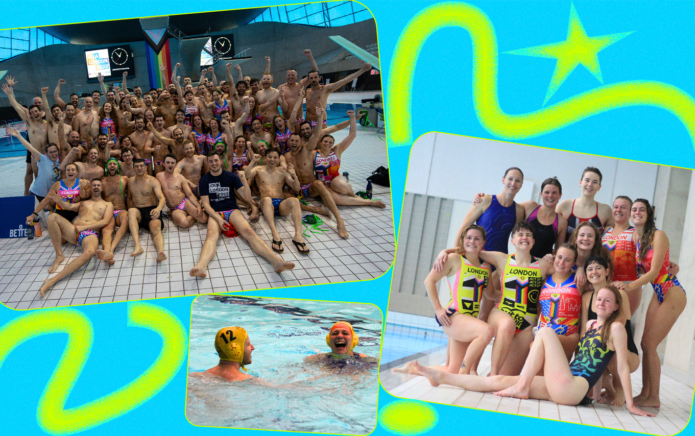
This is State of Play, a new column by GAY TIMES Contributing Editor Jamie Windust. Every month, Jamie will be jumping, running and diving head-first into the world of sport, movement and fitness.
Exploring queer sporting excellence at every level, they’ll also be reporting on the changes that need to be made in order to make the world of sport fully accessible to all within the community.
Now, here at GAY TIMES we know that trans people have been around for centuries, and we know that you know that too (duh!). But, did you know that in the world of sport, trans people have been hitting it out of the park – sometimes literally – for nearly decades?
Ahead of the Paris Olympics in July, let’s make sure we celebrate our trans history and learn about the trans sporting pioneers you need to know.
Dora Ratjen
In the language of today, champion high jumper Dora Ratjen would be considered to be intersex. However in 1938 the athlete’s identity was widely misunderstood.
Ratjen was raised as a girl, and competed in the high jump at the 1937 German Athletics Championship, where they won gold. In 1938, they broke the world record but the accolade was rescinded 20 years later after it was claimed that Ratjen was ‘a man’ by fellow competitors who deemed their win to be fraudulent.
According to a 1966 article in TIME, Ratjen was forced to ‘appear as a woman’ by the Nazi regime to ensure Germany won more medals at the 1936 Olympics.
Keelin Godsey
Ahead of preparations for their participation in the 2012 London Olympics, Keelin Godsey became the first openly trans contender for the US Olympic track and field team. Perhaps a sign of the lack of accessibility for trans athletes, he shared that he would compete in the women’s category despite identifying as male.
In a feature for Sports Illustrated, writer Pablo Torre explained that after the Olympics were over in 2012, Godsey would “start to medically transition and his career as an elite athlete will end’, highlighting the difficulties trans athletes faced in their respective sports even in recent history.
View this post on Instagram
Miss Gaviota
Set against the backdrop of an alarming rate of transphobic violence in Mexico, Miss Gaviota (aka. Wendy Martinez) has become the first trans lucha libre wrestling star in the country.
Lucha libre, a type of professional wrestling originating in Mexico, has been around since the 20th century and is commonly known for its intense lifts and colourfully camp masks and costumes.
Martinez has said that the discrimination she faces on the streets has ‘served as fuel for her career as an athlete.’
Chris Mosier
As well as being an unstoppable force as a triathlete, duathlete and racewalker, Chris Mosier used his position as a world-class athlete and four time national champion to push the door wide open for future generations of trans people.
As well as becoming the first openly trans athlete to make it onto the Team USA sprint duathlon men’s team for the 2016 World Championship, he challenged the International Olympic Committee’s (IOC) policy around trans inclusion in sport in 2015.
This led to updated guidelines issued in January 2016, which allowed trans men to compete “without restriction” in male competitive categories and removed surgery as a prerequisite for trans women to compete in female categories (though requiring them to undergo HRT).
Sadly, IOC guidelines have since been updated yet again, allowing individual sporting associations to set their own guidelines (including those which disqualify trans women in female categories).
View this post on Instagram
Kye Allums
Kye Allums came out in 2010 as a trans man and became the first publicly trans person to play NCAA (National Collegiate Athletic Association) Division I College Basketball.
As a star of Laverne Cox’s documentary The T Word, Allums travelled across America speaking to young trans people about what it means to him to be an out trans athlete.
To this day, Allums still speaks out openly for LGBTQIA+ folk in sports, using their voice to advocate for trans-inclusive change across all sporting disciplines.

